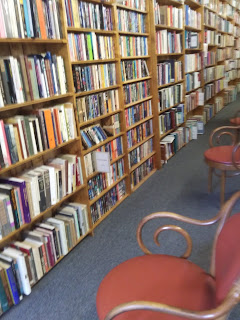You’re the Executive Director of a Network for Grateful Living. Could you give us a sense of the mission of the organization?
We offer support and guidance for people to practice living gratefully, for the practice of grateful living.
You were diagnosed with Stage IV cancer over 29 years ago. In an interview on the Grateful Living website, you mention that this experience was life-changing, causing you to see the benefits of being grateful in a radical way. You said that being grateful “not only changes your life but also extends beyond your intimate sphere. It gives rise to compassion, kindness, forgiveness and empathy…" Could you help explain the connection between gratitude and these benefits?
One of the things that’s important is we’re not talking about gratitude as a self-satisfying proposition. Or a fleeting emotional response. But it’s an orientation to life. Living gratefully every moment. Every day could be your last day. We’re not in control of how long we live. Every single day is a precious gift. A good way to live is not to squander that opportunity. It encourages us to live with great fullness of heart. Gratefulness of heart is a much more open-hearted way of life. It gives you an immediate opening to forgiveness. Living gratefully puts us in immediate touch with what matters, so we tend to live much more intentionally, taking much less for granted. You don’t assume there’s more time to repair relationships and show the people you know that you love them. You’re more likely to live your heart out loud. It (living gratefully) makes me much more content. I’m busy staying in touch with being content with what I have. I feel much more interconnected. It leads to greater engagement.
You also mentioned that gratefulness can drive social action. “Whether it’s the environment, democracy, or your community, when you feel grateful for something, you notice what it needs and you do what you can to take care of it.” I’m wondering if you see cultivating gratefulness as a part of the solution to our current state of polarization in the US and around the world?
I believe that it can lead to higher levels of cooperation, coming out of a sense of interdependence. When I’m in touch with my values, my values are very much concerned with preserving our planet, civil rights, and peace. All these things orient me in a particular way. It makes us more active towards the things we value. If you tend what you value, your values thrive. Tending what I value makes me more engaged in a world worth living in. I don’t think it promises to heal the divides, but it would serve the world if all the people who cared about the environment, diversity and civil rights acted on these things. Acting on our values will serve the world, but not necessarily heal it completely, because there are very big value divides in our world.
In another interview on the Grateful Living website, you talk about being aware of the present moment. “You know when you are so present and feel so grateful you just want to cry? When the gifts of the moment are truly moving and turn you inside out? That’s the kind of gratefulness I’m talking about.” That is one of the most powerful definitions of gratefulness, and living in the moment that I’ve come across! Would you like to describe one of those moments in your own life?
I feel this way every single day, whenever I say goodbye to someone I love. For me, living gratefully means I live in that awareness of poignancy. Poignancy means everything. Preciousness of life and uncertainty of time. If you live that way, your heart is always on the outside of your body. Because I’m taking nothing for granted. It’s living fully awake. It’s an extraordinarily powerful way to live.
You also make a connection between vulnerability and the ability to be grateful. “When you live fully inside your vulnerability, feeling grateful for the gift of life, you’re much less likely to say and do the things – or not say and do the things – that will lead to regret.” I’m curious to know how you discovered this connection? For one thing, being vulnerable means opening yourself up to experiencing everything of life, including pain and suffering. So, vulnerability could be seen as a two-edged sword.
Non-denial means when you’re in grief, you’re in grief. One of the biggest regrets people have is not being true to what is true to them - love, sadness, or love and sadness in the same moment. We tend to think of emotions as compartmentalized, but they’re not. If you don’t take life for granted, you’re less likely to put off things you want to do. Putting off things makes room for regret because we’re not being true to ourselves. Living gratefully compels us to be fully alive now. It’s a better way to go through life, rather than waiting until the conditions are just right.
In this same interview you said that the “biggest lesson from cancer for me is that we don’t get to control everything.” Which can come down to asking: “What can I do in this moment?” You go on to say that “There’s a way to dance with this mortality and truth.” Again, the idea of striking a balance between not being able to control everything and focusing on the present moment.
I think it’s a great paradox of life. When we accept our mortality, the truth of our mortality, and the uncertainty of when we will meet that state, we come most alive. It brings forth that quality of aliveness in us -the ultimate paradox, which is in and of itself enlivening.
Here’s another bit of wisdom you mention. “Nothing is promised us… it’s liberating… my aliveness is so connected to taking nothing for granted… It’s a radical practice.” I love this idea, this connection!
That’s the whole thing – the practice of living fully, being fully engaged, in the presence of all of the uncertainty that we have, combined with taking nothing for granted. It’s very liberating. Empowering. Clarifying. I try to make it worth the risk.
Speaking of this connection, here’s a huge tip you offer: “Cultivating perspective is important to maintaining gratefulness.” Would you care to elaborate a bit?
Cultivating perspective is critical to maintaining gratefulness. It’s the centerpiece of the practice. We gain and lose perspective constantly. Being able to know how to find perspective when it’s elusive is a core practice. Knowing what are the things that bring us perspective. We have to know what we need to remind ourselves: What are the larger truths that get us out of our little minds? I call the practice spiritual musculature. How to get back to living gratefully. Sometimes it’s getting out into nature, or knowing what to read (poems, meditation), movies, music, quotes we can remember. Questions we can ask ourselves that can guide us back. It’s the greatest tool of all.
Towards the end of this interview on the Grateful Living website, you say that your greatest wish is that “love would be the dominating currency.” And then you encourage viewers to “Love big, love generously, love hard with your heart, banging on its hinges. Because it matters and this moment is all we have.” That’s a deeply spiritual thing to express.
I believe that we are made of love, made for love, made to love. Fulfilling our purpose in life is almost always connected to the essence of that. The more we can connect to that reality, the more beautifully alive and fulfilled we will be and the world will be. It’s catalyzing. We bring ourselves and our planet toward the possibility of healing. It moves me. Love is what’s important.



























